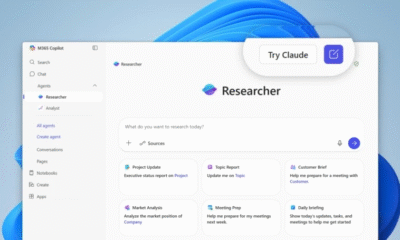Startups
Avoiding Common Compliance Pitfalls in Startup Operations

2025: The Year of Startup Growth and Compliance Challenges
2025 has been a groundbreaking year for startups globally, with a significant increase in global startup funding reaching $91 billion in the second quarter alone, according to data from Crunchbase. The momentum is palpable, as founders worldwide are rapidly building and aiming for bigger dreams.
Despite this positive trend, the reality remains stark. While startups focus on product development and customer acquisition, compliance issues often lurk in the background. Shockingly, around 90% of startups still fail within their initial years, facing various challenges such as market fit issues and cash flow problems.
Among these challenges, compliance violations stand out as potentially preventable yet highly damaging. Companies expanding internationally face even greater hurdles. Neglecting local regulations on data protection, anti-corruption laws, and trade sanctions can spell trouble for otherwise promising ventures.
The good news is that most compliance errors follow predictable patterns. By understanding these common mistakes, startups can proactively avoid them altogether.
#1: Prioritize Regulatory Compliance Early
In the first half of 2025, regulatory penalties surged by over 417% as enforcement agencies ramped up oversight. Financial services firms bore the brunt of this crackdown, especially with tightening Anti-Money Laundering (AML) and Know Your Customer (KYC) regulations. The message from regulators is clear: compliance is no longer optional.
Ignoring regulatory requirements can have dire consequences, as seen in the case of Solid, a fintech platform in Palo Alto. Despite previous success, the company filed for bankruptcy in 2025 due to escalating regulatory compliance costs and legal disputes draining their resources.
To avoid such pitfalls, startups must embed compliance into their core operations from day one. Hiring a compliance officer early on, budgeting for regulatory expenses, and mapping out relevant regulations are crucial steps. Implementing automated monitoring systems can help flag potential issues before they escalate into violations.
#2: Leverage Automation in Compliance Management
Expanding internationally poses unique compliance challenges, even in basic functions like payroll. Automated solutions can simplify compliance tracking, ensuring timely adherence to varying regulations across borders. Platforms like Remote offer AI-driven systems that monitor legal changes in real time and provide actionable insights for compliance management.
#3: Navigate Cross-Border Hiring and Employee Relocation
Recent changes in visa regulations, such as the H-1B program, have complicated international hiring for startups. By auditing visa applications, exploring exemptions, and staying informed on policy updates, companies can navigate these challenges effectively. Rethinking talent acquisition strategies to minimize visa dependencies and utilizing platforms that manage local compliance can streamline the process.
Integrating Compliance into Your Growth Strategy
Successful founders understand that compliance is as critical as security or customer service from the outset. By prioritizing compliance, startups can expand globally, hire internationally, and focus on growth without constant legal disruptions. Avoiding common compliance mistakes through proactive measures is key to long-term success in the competitive startup landscape.
Every misstep mentioned here is entirely avoidable with the right approach and foresight. By addressing compliance challenges head-on, startups can position themselves for sustainable growth and resilience in an evolving regulatory environment.
-

 Video Games2 days ago
Video Games2 days agoGoku Takes on the Dragon Ball FighterZ Arena
-

 Video Games3 days ago
Video Games3 days agoTekken 8: Rise of the Shadows
-

 Amazon3 days ago
Amazon3 days agoNeil Young Takes a Stand: Pulling Music from Amazon in Protest of Jeff Bezos’ Support for Trump
-

 Tech News3 days ago
Tech News3 days agoSamsung Galaxy UI 8: Embracing the Big Free AI Upgrade
-

 Microsoft18 hours ago
Microsoft18 hours agoMicrosoft Integrates Anthropic’s Claude AI Models into 365 Copilot: A Deepening Relationship with OpenAI
-

 Cars21 hours ago
Cars21 hours agoRevving into the Future: Ferrari’s Plan to Unleash 20 New Models, Including Electric Vehicles, by 2030
-

 Security3 days ago
Security3 days agoCritical Vulnerability Exposed: Oracle EBS Targeted in Recent Cyber Attacks by Cl0p Hackers
-

 Apple3 days ago
Apple3 days agoExploring the Dystopian Realms of Pluribus: An Apple Original Series Trailer


























